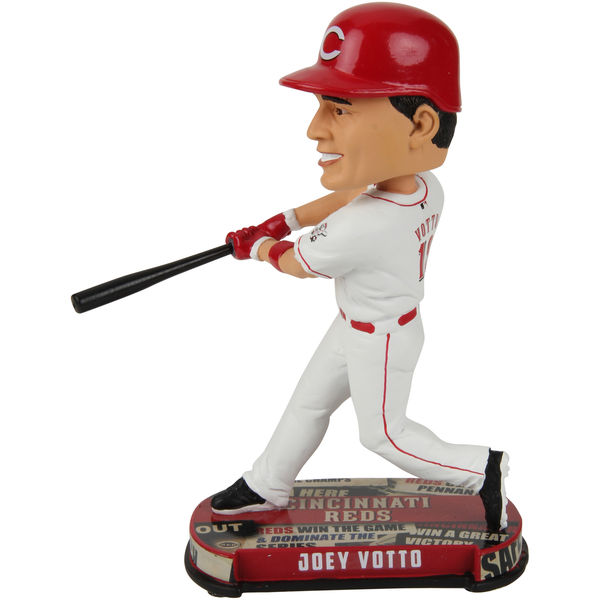February 22, 2018
The Bobblehead Tax: Cincinnati Reds Court Case Could Impact Promo Industry
The Cincinnati Reds, Ohio tax officials and branded game-day merchandise like player bobbleheads are at the center of an intriguing court case that could send reverberations throughout the promotional products world.
On Wednesday, the Ohio Supreme Court agreed to consider an appeal from the Reds. The Major League Baseball team argues that state tax officials have no legal basis to demand the payment of $88,000 in taxes tied to Reds-branded promotional products that the team provided to fans on game days between 2008 and 2010. The Ohio Department of Taxation, however, is doing just that, saying the Reds owe the levy.

The Reds contend that they’re entitled to a resale exception/exemption because they’re reselling the items as part of advertised ticket sales. Ohio law exempts companies from paying tax on items they buy to resell.
Lawyers for the Reds explained their position: Team officials identify certain games on the schedule they suspect fans won’t be as interested in attending. To beef up ticket sales to such contests, the team advertises – and then provides – bobbleheads, player cards and other Reds-themed memorabilia as part of a fan’s ticket purchase. “The price paid for the ticket includes consideration for the promotional item,” Reds attorneys say in a court filing. “Accordingly, the Reds purchase of such items is exempt from tax since the items are resold to game attendees.”
Ohio tax officials take an altogether different view. They say the Reds didn’t resell the promotional items as part of the ticket price, but rather gave them away for free to increase interest in games. As such, the state tax commissioner contends that the promotional items should be taxed because the Reds bought the products to be distributed as freebies and are not, in fact, part of a ticket sale.
To support their position, tax officials say that the ticket price for each particular seat is the same throughout the season, whether a promo item is offered or not. Furthermore, not all patrons are guaranteed that they will get promo merch for a game in which it’s advertised because supplies are limited. Relatedly, if a game attendee decides she doesn’t want, say, a bobblehead, then her ticket isn’t discounted. Given all that, the state Board of Tax Appeals denied an appeal from the Reds.
“We conclude that the Reds have not provided this board with competent and probative evidence in support of the position that it does not owe the assessed tax,” board members wrote in their ruling. “It is the decision of the Board of Tax Appeals that the decision of the tax commissioner must be affirmed.”
The Reds decided to appeal to the state Supreme Court. There the case rests, awaiting an initial hearing.
Depending on how the court rules, the case could have sweeping implications for the promotional products industry. Should the court side with tax officials, will teams and other businesses in Ohio be discouraged from investing in branded merchandise for game-day promotions and, indeed, other events because they don’t want to pay taxes on the items? Could an Ohio ruling in favor of the tax commissioner’s findings influence other states to enforce similar actions? Stay tuned.